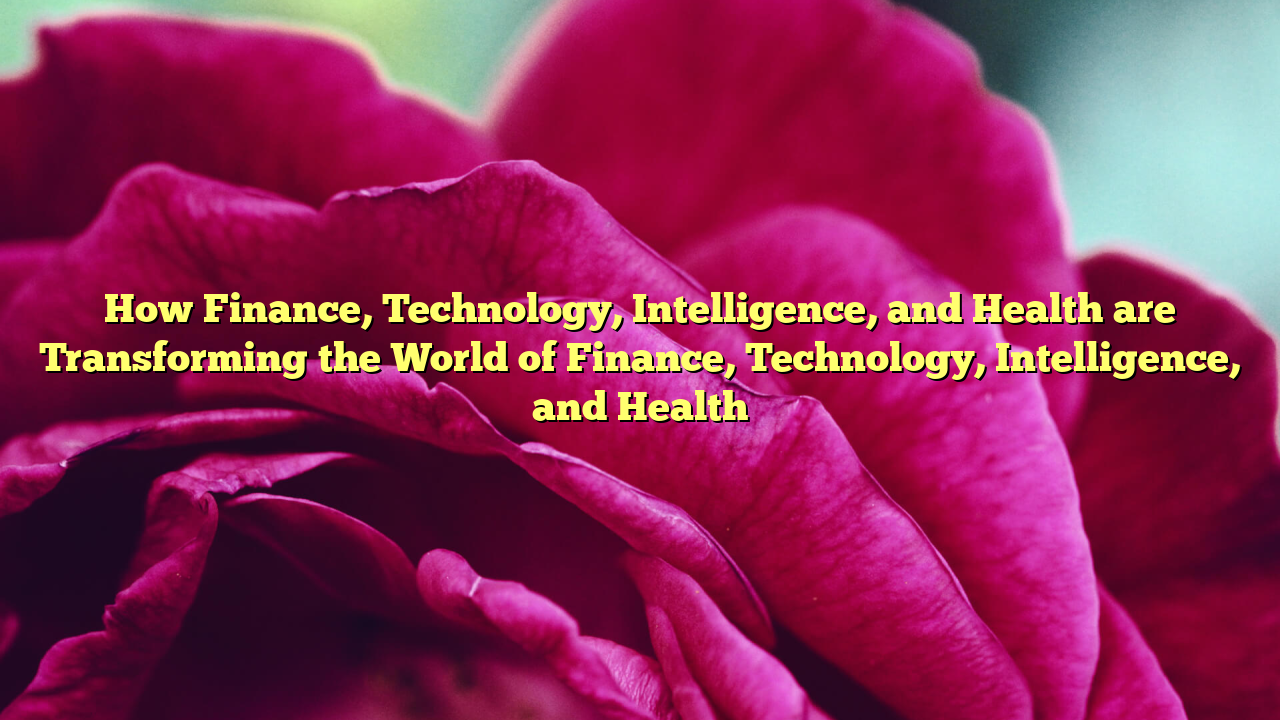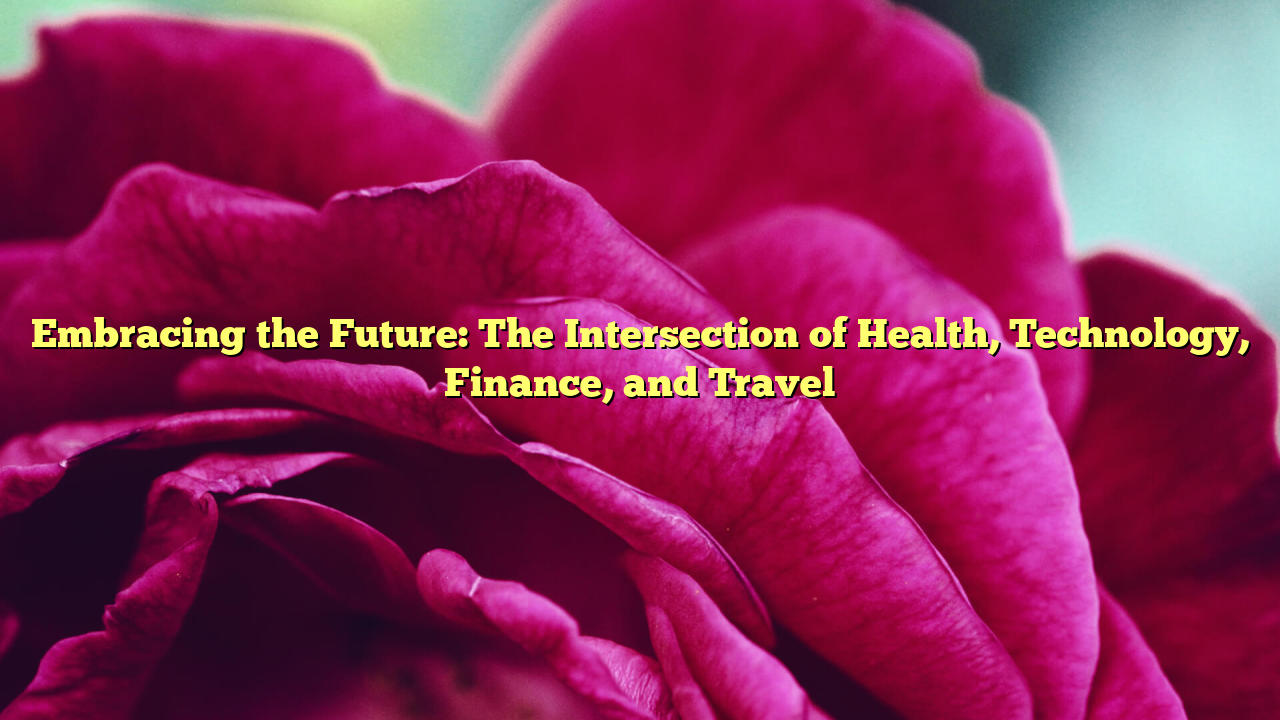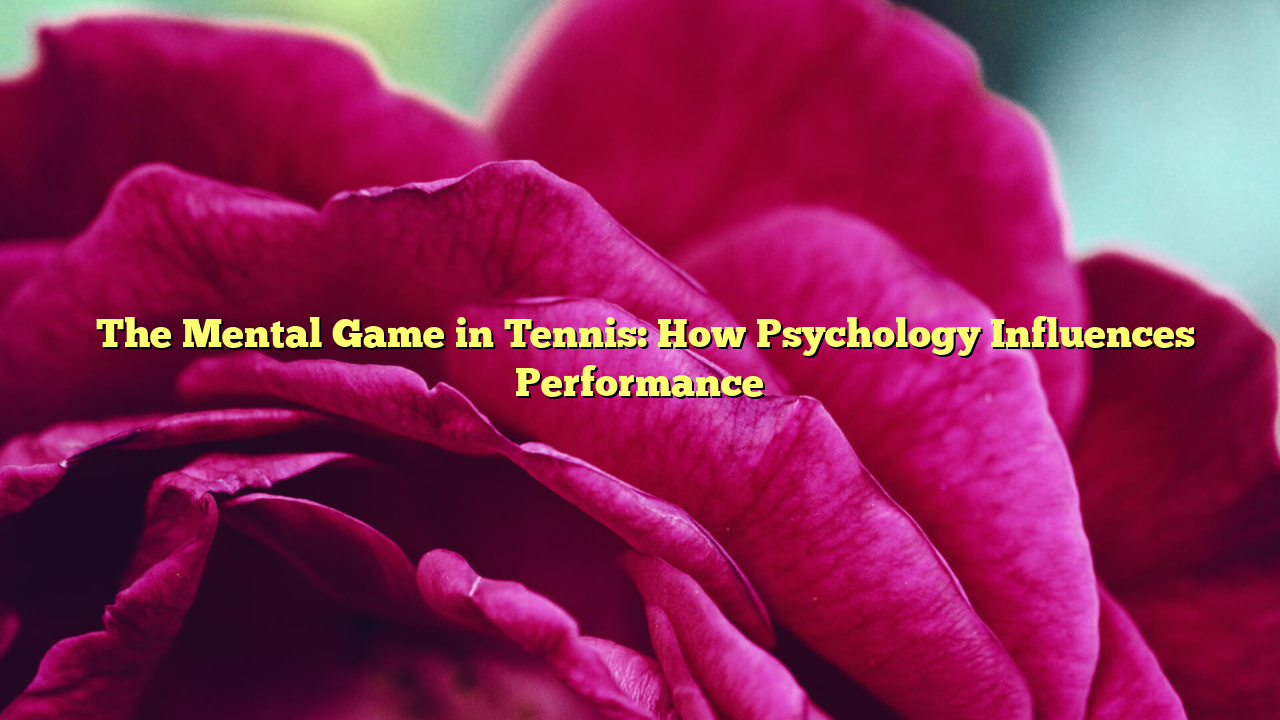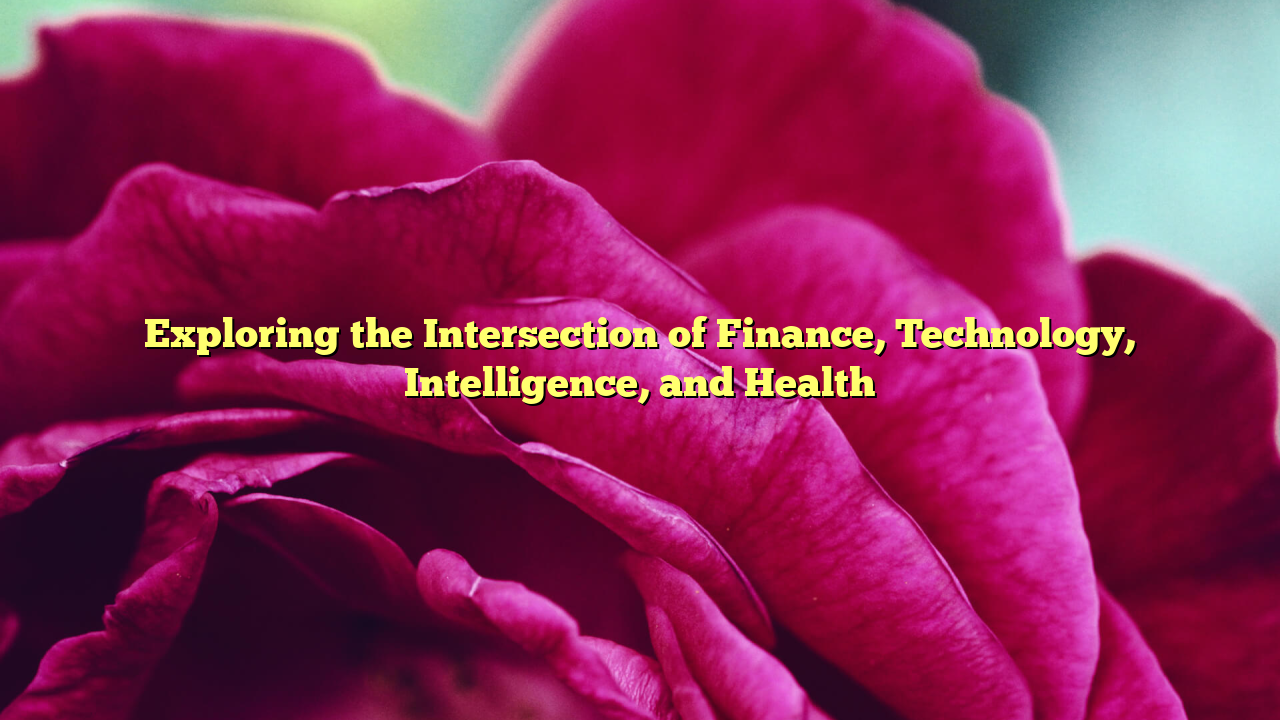In today’s rapidly evolving world, finance, technology, intelligence, and health are closely intertwined. These fields, which were once distinct from each other, are now influencing and shaping one another in profound ways. In this piece, we examine how each of these sectors is contributing to the betterment of society, pushing boundaries, and creating new opportunities.
The Transformation of Global Finance
The world of finance has undergone significant changes in recent years, largely due to the rise of technology, digital platforms, and data analytics . Gone are the days when finance was primarily a matter of physical banking and simple investments. Today, the rise of digital banking, online investment platforms, cryptocurrencies, and the use of AI in financial decision-making.
Fintech has revolutionized the way individuals and businesses interact with money. Slot Gacor Hari Ini like PayPal, Square, and Robinhood have made it easier for people to access financial services without needing traditional banks. These services are powered by advanced algorithms, which help individuals make better financial decisions based on data analysis and predictive models.
The rise of digital currencies such as Bitcoin, Ethereum, and others have created an entirely new asset class. Decentralized finance allows people to lend, borrow, and trade assets without intermediaries, which has significantly reduced transaction costs and increased financial accessibility.
Moreover, AI and machine learning are playing an ever-larger role in improving financial services. With AI-powered investment tools and robo-advisors, users can benefit from personalized financial advice, predictive analysis, and automated transactions that make investing more efficient and accessible than ever before.
Technological Advancements Changing the World
Technology has always been a catalyst for change, but in recent decades, its pace has accelerated at an unprecedented rate. The advent of the internet, mobile devices, and cloud computing has transformed how we communicate, work, and live. But perhaps the most groundbreaking innovation in recent years has been the rise of artificial intelligence.
The evolution of AI technologies are changing nearly every aspect of human life. In the realm of finance, AI algorithms are improving the efficiency of trading and asset management. In healthcare, AI is being used to predict patient outcomes, and in daily life, voice assistants like Siri, Alexa, and Google Assistant are helping people navigate their environments.
The Internet of Things (IoT) is transforming everything from home appliances to industrial systems. IoT allows devices to communicate with each other and share data, leading to smarter cities, improved healthcare monitoring, and more efficient supply chains.
One of the most promising areas where technology is making a significant impact is in healthcare. The development of wearable devices has enabled individuals to track their health in real-time. Devices like the Apple Watch and Fitbit can measure heart rate, track steps, monitor sleep, and even detect early signs of potential health problems.
Telehealth has become more popular due to advancements in video conferencing and remote monitoring tools. Patients can now consult with doctors from the comfort of their homes, significantly improving access to healthcare services.
How Human Intelligence is Evolving
Intelligence, both human and artificial, plays a pivotal role in the development of all other fields. As we move further into the age of automation and AI, the question arises: what does it mean to be truly intelligent? In the past, intelligence was measured by an individual’s ability to solve problems, learn from experience, and apply knowledge in practical ways. Today, however, intelligence is viewed more broadly, encompassing everything from emotional intelligence to machine learning capabilities.
Artificial intelligence is already outpacing human intelligence in certain areas. In fields like medical diagnosis, AI systems are capable of processing massive amounts of data far faster and more accurately than any human could. However, this does not mean that human intelligence is becoming obsolete. Instead, the integration of AI with human intellect is paving the way for new kinds of problem-solving and decision-making.
The key to success in this new era will be the ability to combine human intuition with machine learning . For instance, in the healthcare sector, doctors are using AI-driven diagnostic tools to assist with decision-making, but ultimately, it is human judgment that guides treatment options. This hybrid model allows for a more holistic approach to problem-solving and ensures that AI is used as a tool to enhance human capabilities, not replace them.
Moreover, as AI systems become more advanced, there is a growing emphasis on creating intelligent systems that are ethical, transparent, and aligned with human values. This is particularly important in areas such as finance, where AI’s ability to make autonomous decisions raises concerns about fairness, accountability, and bias.
Health: The Intersection of Technology and Wellness
Health has always been a critical concern for society, but as we face increasing challenges such as an aging population, rising healthcare costs, and the prevalence of chronic diseases, the need for innovative solutions has never been more urgent. The convergence of technology and healthcare promises to revolutionize the way we approach health and wellness.
In recent years, we have seen the rise of digital health technologies that offer new ways for patients to manage their health. Health apps have allowed people to monitor their vital signs, track their activity levels, and even receive personalized health recommendations. These technologies are not only helping individuals live healthier lives but are also reducing the burden on healthcare systems by enabling preventative care and early detection of illnesses.
Furthermore, AI-driven tools are becoming essential in the field of medical research. Machine learning algorithms are being used to analyze vast datasets, identifying patterns and correlations that may have been overlooked by human researchers. This is leading to more effective treatments, drug discoveries, and a deeper understanding of diseases.
Gene editing is another groundbreaking area of health innovation. This technology has the potential to eliminate genetic disorders and revolutionize how we approach disease prevention and treatment. While ethical debates surround its use, there is no doubt that gene editing could play a major role in shaping the future of healthcare.
In conclusion, the intersection of these four domains is creating a more interconnected and advanced world. As technology continues to advance and we discover new ways to apply AI and data analysis, the potential for positive change in these fields is immense. The future is bright, and we are only beginning to scratch the surface of what is possible.
How Finance, Technology, Intelligence, and Health are Transforming the World of Finance, Technology, Intelligence, and Health



